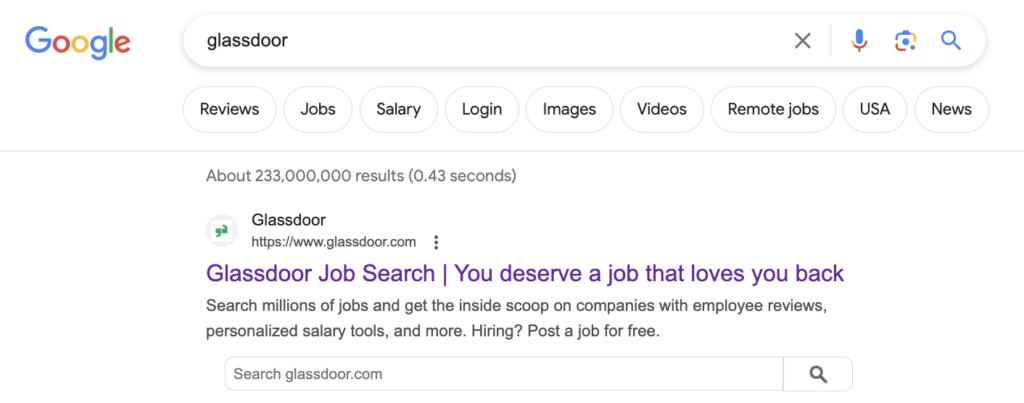
Glassdoor tells anyone interested in working that they – their lives, their opinions, their wants – matter. It provides a platform for current and past employees to share their voice, allowing them to support company growth or block it.
If you think Glassdoor doesn’t need to be on your radar, think again.
Table of Contents
Why Glassdoor is important
People hesitate to make decisions without checking in with others. In an online world, this means reading reviews. Check out some monthly stats for Glassdoor from SEMRush:
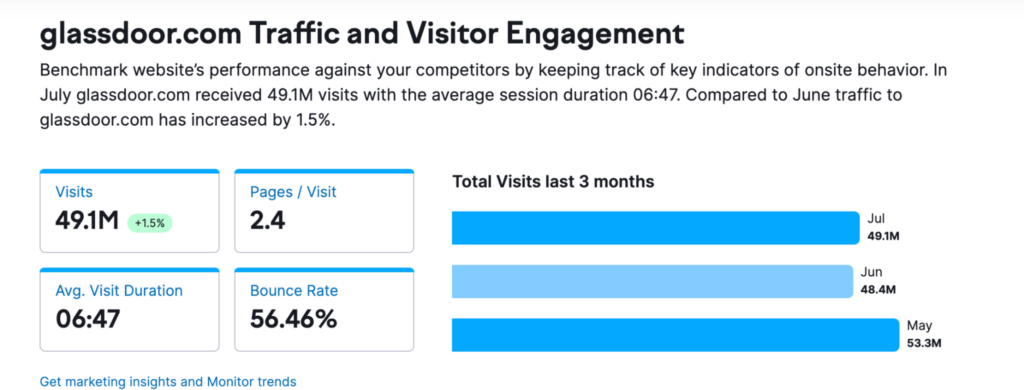
That’s 49.1 million visits in July alone. That’s not pocket change.
What are all these people doing on Glassdoor? They’re looking for a life change. They want to know if going to work for a certain company brings with it excitement, purpose, peace, and security, or if it causes stress, frustration, and a feeling of being stuck. 70% of employees that responded to a McKinsey survey said that their sense of purpose is defined by their work. If people don’t feel they have a purpose at work or can’t live their purpose out at work, they are going to be unhappy, less productive, and more likely to leave.
So, they turn to reviews to find out if purpose is possible. They want to know what perks you offer, yes, but they can get that from your website. With Glassdoor, they find out if the perks are worth it, or if they’re a lifeboat thrown out by a company trying to lure people into a sinking ship.
In other words, they find out if your employees are happy, or if they’re anything but.

Think about it like this – we know that people scour the web for reviews when it comes to buying products. Some stats include:
- 93% of people read online reviews before making a purchase
- 97% of people say that customer reviews factor into their decision making
- 79% of people put as much weight in online reviews as they do in personal recommendations
- 86% of people hesitate to work with a business if there are too many negative reviews
This is for purchasing anything from food to a hairbrush to clothes. Important matters, but not as important as a job. If people are that influenced by reviews when it comes to adding an object to their home, how much more influenced are they when they’re deciding where to spend the majority of their time and life?
Very influenced. In a recent survey conducted by Glassdoor:
- The third result was Glassdoor
- 8 of the 10 first page results mentioned Glassdoor as an investigative tool
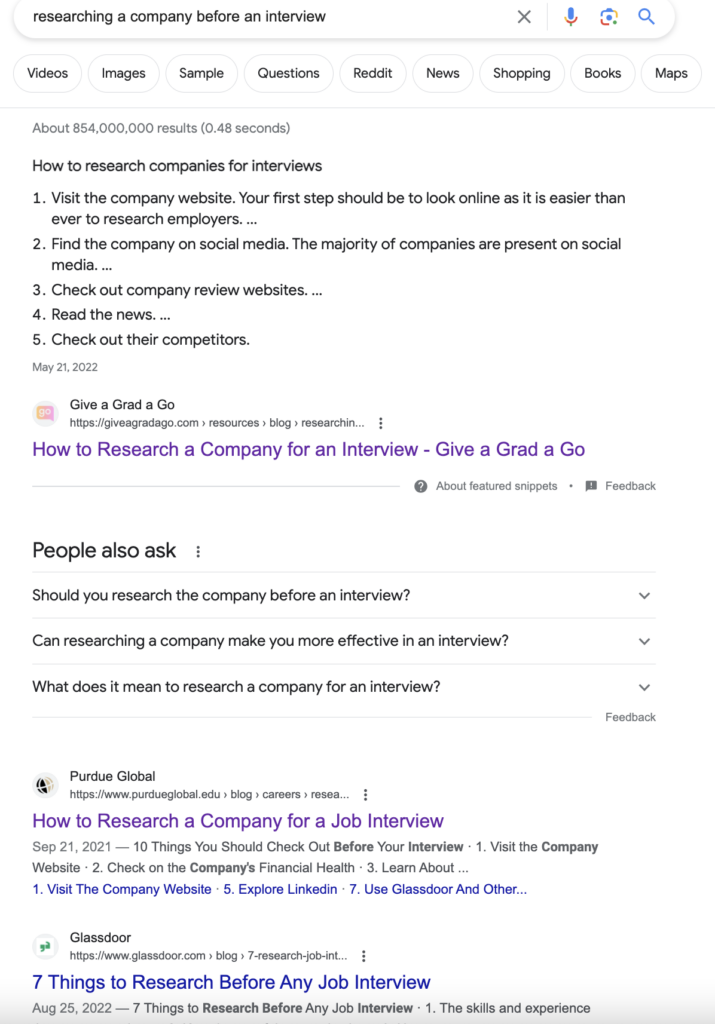
This means that even if someone doesn’t turn to Glassdoor immediately, they are likely to decide that they should visit the site – after all, article after article after article is placing Glassdoor before them as a good source for determining a company’s reputation.
It isn’t just articles that influence searchers towards Glassdoor. Look what happened when I performed a Google search for Riata Capital Group.
First, at the bottom of the first page of results, I saw this in the related searches:
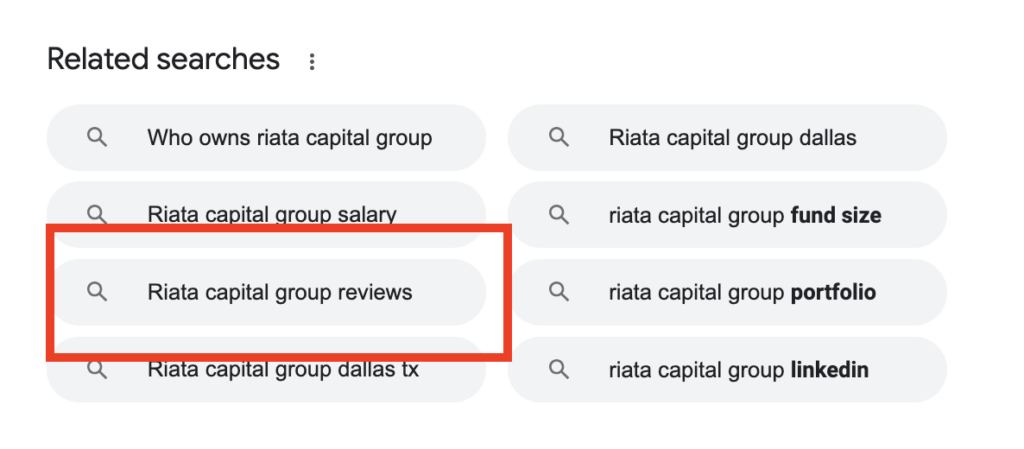
This tells me that a lot of people are using that search term. Enough that Google wants to make me aware of it because the odds are that I’m going to be interested as well.
If I click on that search phrase, this is what I see:
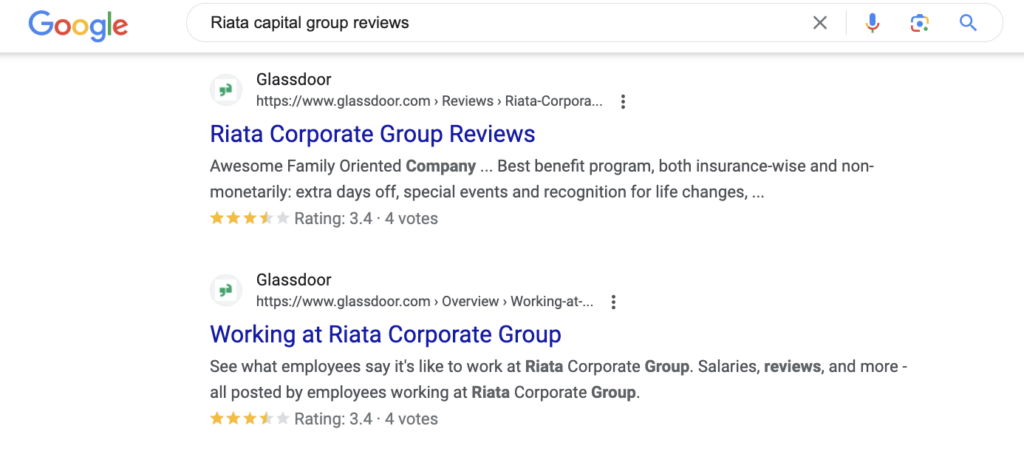
The first two organic search results are for Glassdoor. The company rating is right there, as well. I wouldn’t even have to open the page if I thought a rating of 3.4 from 4 reviews wasn’t enough to interest me.
This result – Glassdoor being a top choice – is going to happen consistently because the site has a domain authority of 91/100. This means it is judged to be incredibly trustworthy, reliable, and helpful.
So, it’s wise to assume candidates are going to visit Glassdoor. When prospective candidates make that visit, what are they going to see on your company page? A positive brand reputation that makes them want to work with you? Or a poor reputation that makes them run away?
What makes Glassdoor challenging
Now that we agree on the importance of Glassdoor, we can get into the nitty gritty. You see, while Glassdoor should never be ignored, it has its challenges. (If you’ve read any of our other posts, you’ve seen that this is a theme in the marketing world – nothing is easy. Luckily, there are winning strategies out there!)
What’s specifically challenging about Glassdoor? Basically, negative reviews can crush you and you don’t have control over who is leaving reviews and what they are saying. Depending on how many reviews a company gets, reviewing each one can be a full-time job. Especially if a company goes through a crisis and negative reviews start pouring into the site.
While time consuming, monitoring reviews is important and does make a difference. In one Glassdoor survey
- 7 out of 10 people indicated that they had changed their opinion about a brand after seeing a company respond to reviews
In other words, how you handle criticisms can be the determining factor in whether someone puts you in their “like” or “dislike” mental list.
So, you have a site that heavily influences brand reputation. It needs constant oversight to ensure that it is up to date and that all reviews receive replies that show that you actually care and didn’t hire a robot to copy+paste a PR statement.
This is in addition, of course, to all other marketing and PR work that you must do, on top of every other business responsibility. How do you manage it? Set in place some well-crafted strategies and tactics.
Tactics to manage Glassdoor

Whether your Glassdoor has five reviews or five thousand, these are tactics that will help you work with the site and benefit from its influence.
- Create and maintain an accurate and appealing representation of your company. Glassdoor isn’t only about reviews – although those are clearly high priority. Your Glassdoor company page is also a place for you to share company information such as perks and benefits, photos of your facility and events, and any awards you’ve received. Make sure your page is up-to-date at all times. If trends in employment shift – say, if work from home policies are less important than at-work daycare – make sure you shift with them and continue highlighting the most important qualities for prospective candidates.
For example, in a Deloitte study, 80% of the almost 9,000 respondents said that well-being is important or very important for an organization’s success. Make sure your page has the latest information on how you prioritize employee well-being.
- Determine who will monitor Glassdoor and respond to reviews. This should be an expressly stated part of someone’s job description. This ensures that Glassdoor gets regular attention and that there’s always someone ready to respond to reviewers.
- Engage with reviews. You should respond to positive and negative reviews. For positive reviews, at the very least leave a “Thank you!” If you can spend the time to be more personal though, that can go a long way. As for negative reviews, you have a few different options. You can ask people to get in touch with you for further discussion, you can share ways that you’ve changed, and/or you can share that you take all feedback seriously and appreciate them taking the time to share their experiences. The important thing with any review response is not to sound insincere or templated. You can use a template – but don’t make it obvious and be willing to personalize.
- Do not ignore Glassdoor ever, not even during crises when you are in survival mode. Glassdoor is a great way to see what external and internal sentiment is regarding your company. If the same issues are being shared repeatedly, pay attention. This can help you know what to address as you pull yourself out of trouble. This is also a way for you to keep in touch with people and let them know that you know things are rough and you are actually taking steps to address them. You aren’t ignoring problems. You are taking responsibility and action. Don’t miss out on an opportunity to have a voice.
- Have a program in place to encourage reviews from current employees. This should go without saying, but let us be clear – you should NEVER bribe or force employees to leave reviews. You can encourage it and ideally can develop a way to get a steady stream of legitimate reviews, but you should not force the issue. A few ideas here: you can have quarterly reminders to ask people for reviews, ask for reviews after big and little wins, share positive reviews with the company and remind everyone how much you appreciate them, and have a section in your company newsletter where you ask people to check out Glassdoor and leave reviews if they’d like.
- Flag fraudulent or defamatory reviews and ask Glassdoor to remove them. When it comes to fraudulent reviews, there is no guarantee that Glassdoor will agree with you, however, it’s always worth an ask. If you think a review has been left by an imposter, flag the review and ask Glassdoor to verify. Glassdoor can then choose to ask the reviewer to prove employment. If the reviewer either doesn’t or can’t, the review can be taken down. The same thing applies to reviews that are clearly duplicate. You can flag these for removal.
As for defamatory reviews, those violate Glassdoor policies so the site should remove them once they know they exist.
And here are a few things you should not do:
- Ignore Glassdoor.
- Write fake positive reviews and post them on the site. When you’re found out, you will lose all credibility with employees.
- Force employees to post reviews.
- Force employees to share reviews with you before posting them.
- Prevent employees from posting reviews by making this part of an employee contract.
These are not ways to build positive relationships with your employees and boost your brand’s reputation. They leave a bad taste in anyone’s mouth and are not part of a good marketing strategy.
Make Glassdoor part of your overall ORM strategy
However, what is part of a good marketing approach is making Glassdoor a part of your overall online reputation management (ORM) strategy. Let it join the club. Join the family. Open the doors!

In addition to all the tips we shared above, making Glassdoor a part of a bigger strategy could mean:
- Working to have it rank higher on Google for more keywords (helpful especially if you are hiring)
- Use it to keep a pulse on the internet – if it’s negative, what are other job sites or even a site like Wikipedia reporting about you? If positive, can you learn from reviews about what people like and use that language elsewhere?
Marketing is never an isolated activity. Learn from Glassdoor, use Glassdoor, and see how it can help you. If you’d like to learn more about how we can help, or hear some good old-fashioned marketing horror stories, give us a call.
- 86% of HR professionals said recruitment is becoming more like marketing
- 86% of employees and job seekers said they research company reviews and ratings to decide on where to apply for a job
- 86% of women and 67% of men would not join a company with a bad reputation
- 50% of candidates wouldn’t work for a company with a bad reputation even for a pay increase
- 92% would consider switching jobs for an opportunity with a company with an excellent corporate reputation



